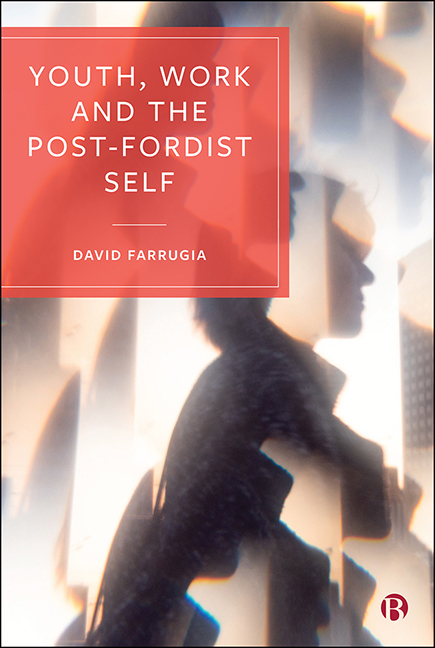Book contents
- Frontmatter
- Contents
- About the Author
- 1 Young People, Work and Society: New Terrain
- 2 Youth in the New Economy: The Post-Fordist Self
- 3 Passionate Subjects and the Middle-Class Self at Work
- 4 Subjects of Achievement: Social Mobility, Competence and Aspiration
- 5 Socially Appropriate and Credentialled: The Struggle for the Working Self
- 6 Conclusion: Young People in the Work Society
- Methodological Afterword
- References
- Index
Methodological Afterword
Published online by Cambridge University Press: 04 January 2022
- Frontmatter
- Contents
- About the Author
- 1 Young People, Work and Society: New Terrain
- 2 Youth in the New Economy: The Post-Fordist Self
- 3 Passionate Subjects and the Middle-Class Self at Work
- 4 Subjects of Achievement: Social Mobility, Competence and Aspiration
- 5 Socially Appropriate and Credentialled: The Struggle for the Working Self
- 6 Conclusion: Young People in the Work Society
- Methodological Afterword
- References
- Index
Summary
This final section of the book is aimed at those readers who are interested in the methodological processes that led to the three-part analysis I have presented in this book. To some, dividing the post-Fordist work ethic into three categories or types may appear anachronistic. After all, sociologists are increasingly being encouraged to attend to ‘mess’ in social scientific research (Law, 2004). We are encouraged to write about the world in ways that are non-linear and that emphasize the complexity and non-linearity of social relationships. By dividing the work ethic into three ideal types, perhaps I am at risk of reducing the social production and contestation of identity into a series of reified categories, and rendering the social world as both simpler and more deterministic than is actually the case. In this afterword I want to anticipate and address these critiques in a way that is both methodologically reflexive and that supports the analysis I have presented throughout the book.
The afterword is organized in two sections. The first provides an account of the analytical process that led to the creation of these categories. This includes a discussion of Max Weber's original ideas on the creation of ‘ideal types’ that inspired the analysis here, and an explanation of how Weber's methods shaped the book's analysis. However, in the second section I want to invite critical attention to these categories through the experiences of a participant whose identity as a worker lies somewhere between the ethics of passion and achievement, and whose experience of substantial social mobility may test the limits of my framework. The ultimate argument I want to make here is that the approach I have developed in this book inspired by Weber's methods has value inasmuch as it emphasizes and creates conceptual relationships between aspects of the self at work that have become critical in post-Fordism. In this, it necessarily imposes a conceptual logic on a world that does not follow the same rules as theory, but in doing so provides an important insight even into experiences that may not immediately appear to follow the conceptual logic of the book.
- Type
- Chapter
- Information
- Youth, Work and the Post-Fordist Self , pp. 141 - 152Publisher: Bristol University PressPrint publication year: 2021

